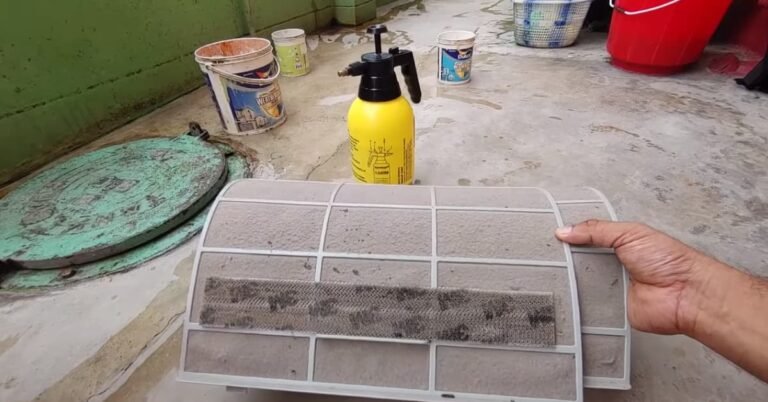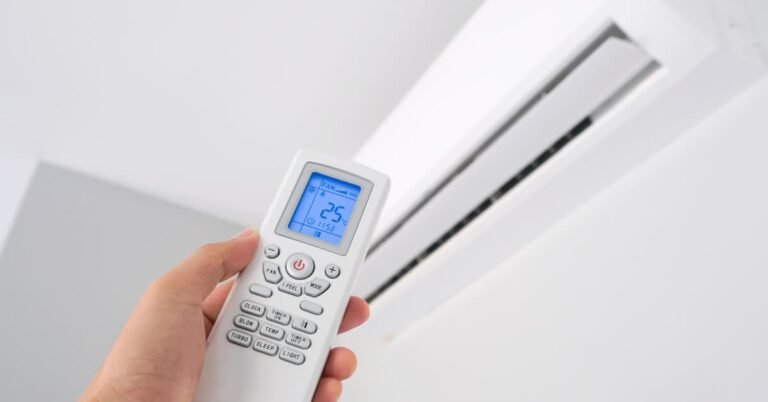Is Dry Mode Good for Health? With Benefits And Drawbacks
Dry mode can benefit health by reducing humidity, which in turn diminishes mold growth and allergens. It’s especially helpful for individuals with respiratory issues.
Dry mode helps prevent these health issues by maintaining a balanced humidity level. Air quality is promoted by using dry mode, not only for a more comfortable environment, but also for overall well-being.
In this article, we will explore the benefits of using dry mode and how it can improve your indoor air quality.
What Is Dry Mode?
An air conditioner’s dry mode makes the room less humid. It works like a dehumidifier. Dry mode does not cool the room as much. It makes the air feel more comfortable.
How Dry Mode Works?
The air conditioner in dry mode pulls in room air. It removes moisture from the air.
Here is how it works:
- It takes in warm, humid air.
- The air passes over cold coils.
- Moisture in the air turns into water.
- The dry air goes back into the room.
- The water drains away.
This process makes the air drier. The room feels cooler and more comfy.
The Benefits Of Dry Mode For Health
Many people wonder about the health benefits of using dry mode on their AC. Dry mode can help make the air in our homes healthier.
Understanding how dry mode works and its benefits for health is important. Let’s explore these benefits in detail.
Reduces Humidity Levels
High humidity can make our homes feel stuffy and uncomfortable. Dry mode helps by taking moisture out of the air. This makes the air feel cooler and more comfortable.
Below are the reasons why lower humidity is good for health:
- Less sweat: Our bodies stay cooler in dry air.
- No dampness: Clothes and furniture stay dry.
- Better sleep: It’s easier to sleep in a less humid room.
Prevents Growth Of Mold And Mildew
Mold and mildew love wet places. They can make us very sick. Dry mode keeps the air dry so mold and mildew can’t grow. This is great for our health.
Here are key points about mold prevention:
- Stops mold spores: Dry air keeps mold spores from spreading.
- Protect your home: Walls and floors stay mold-free.
- Safe for everyone: Especially good for people with allergies.
Improves Indoor Air Quality
Clean air in our homes is very important. Dry mode helps remove things that make the air dirty. This includes dust mites and allergens.
Here’s how clean air helps us:
- No dust mites: These tiny bugs can’t live in dry air.
- Fewer allergens: Things that cause allergies can’t survive.
- Fresh air: The air smells better and feels cleaner.
Helps With Respiratory Problems
People with asthma and other breathing problems need clean air. Dry mode can make a big difference for them. It makes breathing easier and helps prevent coughs and colds.
Here are some benefits for respiratory health:
- Eases breathing: Dry air makes it easier to breathe.
- Less irritation: The throat and nose feel better.
- Good for lungs: Healthy air means healthy lungs.

The Drawbacks Of Dry Mode For Health
Many people use dry mode on their devices to save energy. It reduces humidity by pulling moisture from the air. This might sound good, but it can have some bad effects on our health.
Let’s talk about why dry mode might not be the best for keeping us healthy.
Can Cause Skin Dryness
Dry mode can pull too much moisture from the air. Our skin needs moisture to stay healthy. Without it, skin can become dry, itchy, and irritated.
Here are some things that might happen:
- Dry skin feels tight and uncomfortable.
- Itchy skin can lead to scratching and more irritation.
- Cracked skin can become a problem, especially on hands and feet.
Using a moisturizer can help, but it’s better to also control air moisture.
Can Cause Eye Irritation
Eyes need moisture too. When the air is too dry, our eyes can feel gritty and sore. People who wear contact lenses might find it hard to wear them. Kids might rub their eyes more, which is not good.
Here’s what might happen with dry eyes:
- Redness and swelling
- Burning or stinging feeling
- Blurred vision sometimes
Eye drops can help. But keeping the air not too dry is better.
May Worsen Allergy Symptoms
People with allergies often feel worse in dry air. Dust and pollen stay in the air longer without moisture. This can make allergy symptoms like sneezing and stuffy noses more common.
Here’s what happens:
- Allergy symptoms can get stronger.
- Dry air can make breathing harder for some.
- Sinus problems might happen more often.
Using air purifiers and staying hydrated can help with allergies.
May Affect Sleep Quality
Good sleep is very important for health. Dry air can make our nose and throat feel dry. This can lead to snoring or waking up during the night.
Here are some sleep problems from dry air:
- Dry throat can cause coughing at night.
- Nosebleeds might happen if the nose is too dry.
- People might feel tired during the day because of bad sleep.
Using a humidifier at night can help keep the air good for sleeping.
Tips For Using Dry Mode Safely
Dry mode on air conditioners can help make rooms feel more comfortable. This is important for health and comfort. But, it’s also key to use dry mode right.
This seaction shares tips on using dry mode safely.
Set The Right Humidity Level
Setting the correct humidity level is vital for comfort and health. Too much moisture can make rooms feel hot and sticky. It can lead to mold, which is harmful to your health.
A good humidity level is between 30% and 50%. This range helps keep the air comfortable. It also stops mold from growing.
Use a hygrometer to check the room’s humidity. This tool tells you if you need to adjust the dry mode.
Use The Mode Sparingly
Using dry mode all the time is not a good idea. It can make the air too dry. Dry air can irritate skin, eyes, and throats. It can also make some health problems worse. Try to use dry mode only when needed.
This means when the air feels too moist. Or when the weather is very humid. This way, you keep the air comfortable without making it too dry.
Clean The Filter Regularly
A clean filter is key for a healthy air conditioner. Dirt and dust in the filter can make the air dirty. This is bad for breathing.
A dirty filter also makes the air conditioner work harder. This can lead to it breaking. Keep the air clean by cleaning the filter every month. It also helps the air conditioner work well.
Combine With Other Methods To Improve Air Quality
Using dry mode is just one way to make air quality better. Other methods can also help.
Here are some ideas:
- Open windows when the weather is nice. This brings in fresh air.
- Use air purifiers. They clean the air by removing particles.
- Keep indoor plants. They can help clean the air naturally.
- Avoid smoking inside. Smoke is bad for air quality.
Using these methods with dry mode can make indoor air even better. This is good for health and comfort.
Conclusion
Understanding the benefits and limitations of dry mode is essential for maintaining a healthy indoor environment. It can alleviate humidity-induced discomfort and may benefit those with respiratory issues. Yet, it’s not a one-size-fits-all solution.
Always consider personal health needs and consult with a professional when choosing air conditioning settings for optimal well-being.






